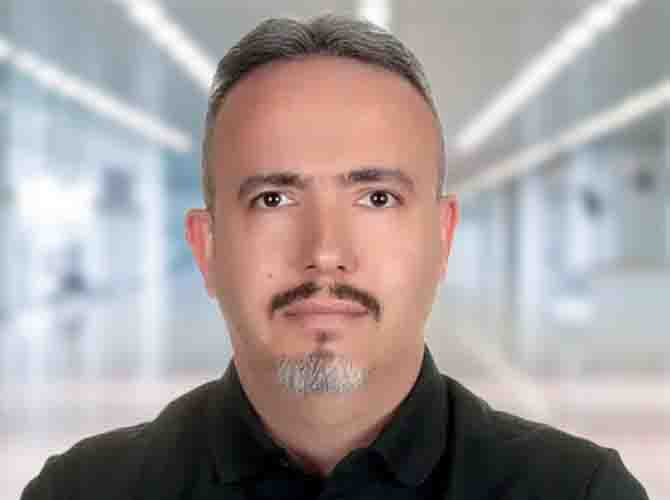As a parent, finding out your child has a heart condition can feel overwhelming. But once you’ve met with the doctors, planned the next steps, and started navigating the medical process, another challenge often comes up: How do you talk to your child about it—without scaring them?
Whether your child has a mild murmur, a complex congenital defect, or needs ongoing treatment, the conversation matters. At KidsHeart, we regularly support families in Dubai, Abu Dhabi, and Al Ain with both the medical and emotional aspects of heart care. Helping children understand their condition in a way that’s honest but not frightening is part of that journey.
Here’s how to approach it, step by step.
Why the Conversation Matters
Children, even very young ones, often sense when something is different. They may overhear medical terms or notice hospital visits and feel uncertain or anxious. Avoiding the topic can create more fear than clarity.
The goal is not to give every detail, but to help your child feel safe, involved, and reassured—even if their condition requires long-term management or future procedures.
In our Pediatric Cardiology clinics, we work closely with psychologists and child development experts to make this process easier for families.
Tip 1: Use Age-Appropriate Language
Your explanation should match your child’s age and development level.
- Toddlers (2–4 years): Keep it very simple. “Your heart needs a little help. The doctor is going to check it.”
- Young children (5–8 years): Use body-based terms they know. “Your heart is like a pump. One part is not working the way it should, so the doctors want to make it stronger.”
- Tweens and teens: You can offer more details and invite questions. They may want to know what medications do, what surgery involves, or how their condition affects sports or school.
Avoid overly technical language. If your child wants to know more, they’ll ask—and you can build the conversation from there.
Tip 2: Emphasize What They Can Do
One of the biggest fears children have is feeling “different.” Reassure your child that having a heart condition doesn’t define them.
- Focus on their strengths: “You’re still going to school, playing with friends, doing amazing things.”
- Explain limits gently: “You might need to skip rough games, but there are so many other fun things you can do.”
- Celebrate their courage: “Going to the doctor or taking medicine is part of being strong and brave.”
Our Sports Participation Heart Health program helps tailor activity guidelines so children can stay active safely.
Tip 3: Be Honest, But Don’t Overload
If your child needs surgery, medication, or a pacemaker, be honest about it—but don’t give too much information all at once. Children process big news in small doses.
Instead of saying, “You have a heart defect and need an operation with risks,” try:
- “The doctors want to fix something in your heart so you feel better.”
- “You’ll be asleep for the procedure, and we’ll be with you the whole time.”
- “After the surgery, you’ll rest for a while, and then get back to your regular activities.”
Let them ask questions, and be ready to say, “That’s a great question. Let’s ask the doctor together.”
Tip 4: Don’t Project Your Own Anxiety
Children look to their parents for emotional cues. If you’re calm, they’re more likely to feel safe. That doesn’t mean hiding your feelings—but try to process your own fears away from the child first.
If you’re struggling, that’s completely normal. Our team includes child psychologists and parent counselors who can support you privately before and after these conversations. You’re not alone.
Tip 5: Use Visuals, Stories, and Play
Especially for younger children, visual learning and imaginative play can help reduce fear:
- Use a picture book or drawing to explain how the heart works
- Role-play with dolls or toys to act out a doctor visit
- Let the child “listen” to your heartbeat with a toy stethoscope
These small interactions can help them feel more in control—and even look forward to seeing the doctor.
At KidsHeart, we often use child-friendly materials and storytelling to explain conditions like murmurs, arrhythmias, or congenital defects in simple, reassuring ways.
Tip 6: Revisit the Conversation Over Time
As your child grows, their understanding will evolve. What made sense to a 5-year-old may need more explanation at age 10 or 13. Be open to revisiting the topic.
Encourage your child to ask questions—especially after clinic visits, tests, or changes in treatment. Teens may want more independence and privacy, and that’s okay. Helping them gradually take ownership of their health is an important part of long-term care.
Common Questions Children Ask—and How to Answer Them
- “Will it hurt?”
“You might feel a little uncomfortable sometimes, but we’ll do everything to keep you safe and cozy.” - “Why do I have this and my brother doesn’t?”
“Every body is different. This is just something we’re helping your heart with.” - “Can I still play?”
“Yes, just with some changes to keep your heart happy.” - “Am I going to be okay?”
“Yes. You have great doctors, and we’re taking good care of your heart together.”
We’re Here to Support Your Whole Family
At KidsHeart, we understand that pediatric heart care is not just about the child—it’s about the entire family. That’s why our care teams include cardiologists, psychologists, and developmental experts who help families feel confident, supported, and informed.
Whether you’re preparing for a first diagnosis, post-surgery recovery, or a long-term condition, we can help you talk to your child with care and clarity.

Dr. Mohamed Sulaiman
Consultant, Fetal & Pediatric Cardiologist – American Board Assistant professor, Columbia University, New York




Prof. Cem Karadeniz
Pediatric Electrophysiologist – MD, PhD – AEPC, EHRA, Pediatric & Congenital Electrophysiology Society
Final Thoughts for UAE Parents
Having a child with a heart condition is never easy—but talking about it can be. With the right tools and emotional support, you can turn a scary subject into one of strength, trust, and resilience.
Our Pediatric Cardiology team is here to help—every step of the way.
with us today in Abu Dhabi, Dubai, or Al Ain, and get the support your family deserves.


